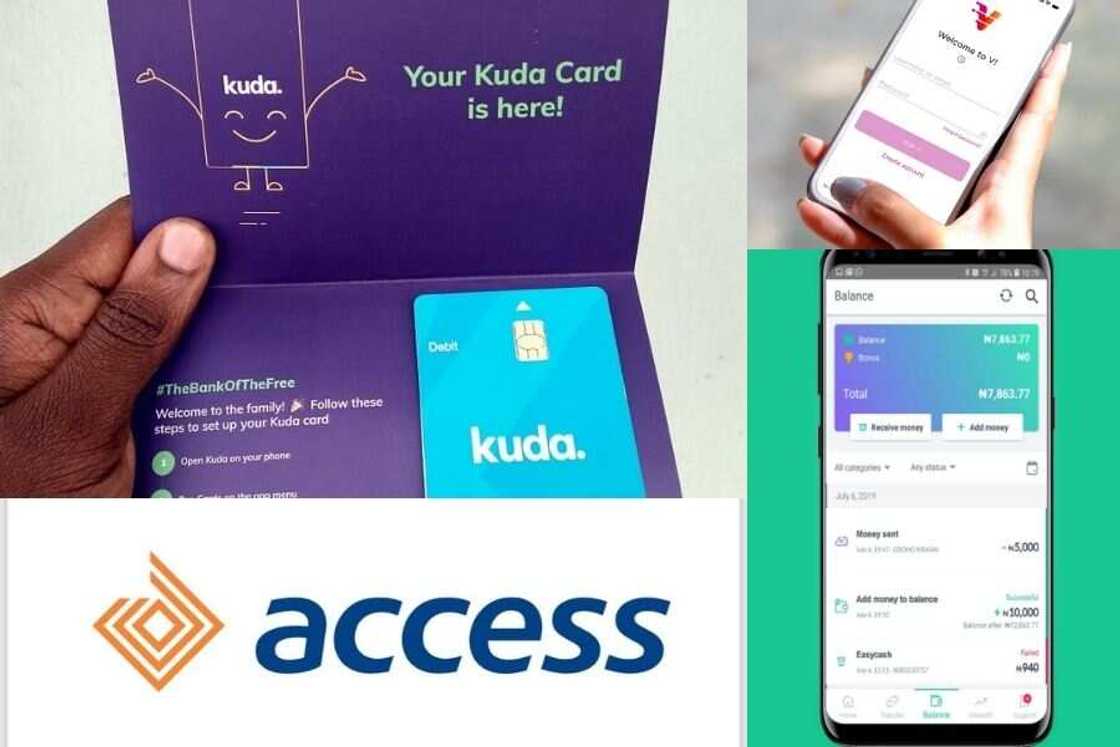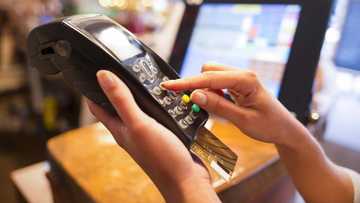Chocked by Excess Bank Charges, Nigerians Turn to Digital Banks and Wallets
- Banks in Nigeria are losing customers, especially the young demography at a dizzying speed and turning to other flexible platforms
- Nigerians say the are being chocked and driven away by traditional banks because of their huge appetite for excess bank charges
- The new platforms springing are a huge lure for young Nigerians who are being pulled by a mouthwatering offers
Excess bank charges are choking bank customers and businesses in Nigeria. In protest or search for alternatives, they are turning in droves to digital banks.
Blessing Akuakanwa said in a Facebook post:
“I woke up to see that my bank has been deducting N50 for every transaction I make in the past one month. I couldn’t calculate the exact amount because it’s huge. I move cash a lot because of my online business”.
Like every other Nigerian who finds the banks’ excess charges irrational, Akuakanwa decided to opt for a digital bank. According to her, she would still maintain a skeletal presence in her traditional banks.

Source: UGC
PAY ATTENTION: Install our latest app for Android, read best news on Nigeria’s #1 news app
For the majority of Nigerians, the digital banks that are mostly branchless, the option of not having to pay any fee on a transaction, is a huge lure and relief.
Many of the digital banks popping up in the country are offering their customers zero charges on transactions and over 20 free transfers to other banks monthly, a major shift from what they have been accustomed to in the conventional banks.
The rip-off and the reprieve
They consider the banks’ charges a rip-off, and as Akuakanwa said, many are unaware of how and why the banks do this.
While the conventional banks charge from N10 to N50 per transfer to other banks, the digital banks are allowing their customers zero charges per transfer.
In 2019, the social media space in Nigeria was flooded with complaints when most of the banks decided to charge their customers accumulated stamp duty in one fell swoop.

Read also
Russia slams Google with N40.6bn fine over banned content as it steps up pressure on US tech firms
The banks were dragged and called out on social media, prompting them to reverse the charges and bear the brunt thereof.
The young, innovative and the search for alternatives
Since ALAT, owned by Wema Bank and touted to be the first digital bank in Nigeria (though, that is contestable), started operations years ago, the shift to digital banking has been gradual and steady.
Many of the traditional banks, like Wema Bank, are recalibrating their business models and embracing digital banking to keep their customers.
Polaris Bank recently launched Vulte, its digital, branchless arm, to keep up with the trends.
Ijeoma Onu, an investment banker, told Legit.ng
“The demographic moving their money into digital banks are the tech-savvy generation. They know how to navigate and find a more profitable means of keeping their money away from excess charge-hungry banks."
Onu believes that the future of banking is digital because the shift won’t stop as more digital banks come up in the country.
She said:
“Look at Kuda, PiggyVest or VBank. All of them are harvesting the young demography and are reaping the rewards. The difference is innovation. They give high interests on savings and offer mouthwatering overdrafts to their customers.".
The driving force
Another thing driving the shift is the support the digital banks offer to SMEs, their response time and flexibility of use, Onu said.
Social media users react:
“I sent money to my Fidelity Bank from Kuda but wasn’t credited. Kuda sent an email to all the senior bank officials at Fidelity. That is the kind of support missing, which we want from the traditional banks."
Olayinka Suraj, posted on social media as this article was being written
“I’m currently enjoying my time using Kuda Bank, which has helped me a lot lately. Super fast in receiving and sending funds to other banks, I hope it stays this way for a long time,”

Read also
Subsidy removal and 3 Other tough economic decisions by FG that will impact you heavily in 2022
“They’d let you know when the network is bad, sometimes when you try sending funds to a bank having network issues, it won’t allow you to even send funds,” he said.
“They reject transfers when their network is bad. They’ve been really helpful and I hope it continues that way,” Damie Sleek said in response to Suraj’s post.
That is the kind of support and timely response from digital banks driving depositors away from conventional to digital banks.
According to Onu:
“I know quite a number of those digital banks offering their regular customers hard-to-resist support"
Onu believes that digital disruption is happening in the banking industry at a dizzying speed, hence the rush by conventional banks to adopt digital banking, a step they considered hazardous in the past.
Wallets to the rescue
Digital banks are not the only ones gaining from outdated banking models. Digital wallets are now ubiquitous in Nigeria.
Most of these wallets offer savings to their customers. Opay, for instance, allows users to save money in their Owealth purse and earn up to 15 per cent on savings annually. This is huge considering that conventional banks give an abysmal 5 per cent.
Apart from providing users with a safe vault to keep their extra cash, wallets like PiggyVest and CowryWise scout for investment opportunities for their depositors and invest on their behalf.
They invest in agriculture, real estate and stocks on behalf of their customers. In the end, the customers are given their ROI.
In February last year, PiggyVest announced it has disbursed over N95 billion as ROI to depositors on their platform.
Most of the depositors, who seek to keep their extra change somewhere safe, find these investment platforms appealing and are reaping the rewards in huge numbers.
Henry Oduah, a PiggyVest user said:
“I use Piggyvest. There are investment opportunities on the platform. Also, interest rates on deposits are higher than those of traditional banks. So I prefer to put ‘spare money there than in traditional banks"
Onu believes that these platforms may eventually pivot to full-scale banking while keeping their innovative banking models.
Onu said:
“By the time they have enough customers, I see them applying for and getting licences to operate full banking operations. What they’re doing now is a dress rehearsal for a mind-blowing disruption in the banking industry. The traditional banks are simply playing catch-up to fintech”, Onu said. Their late arrival to the party means they have to adapt from what these fintech firms are doing to survive."
Apart from the stiff competition posed by fintech, the traditional banks are suffering from a trust deficit.
Chris Nwafor, a tech analyst, believes that unless the traditional banks curb their huge appetite for profits, the boat will sail past them.
He said:
“You can’t support SMEs, you can’t lend to businesses yet, you want to compete in an environment replete with innovation,” Nwafor says while asking the traditional banks to innovate and be more flexible to the banking public.
Top savings platforms paying higher interest rates
Legit.ng reports that the Nigerian financial industry landscape is laced with interesting options, most of which give users the ability to make a choice that allows them optimal use. William Onyeabor: My father is the Fela of the east – Charles Onyeabor
While some banks in Nigeria are paying higher interest to depositors for saving money with them, others are just there to make profits and post interesting figures at the end of their financial year.
The minimum interest rate approved by a regulatory agency like the Central Bank of Nigeria (CBN) is 1.5 per cent.
Source: Legit.ng





